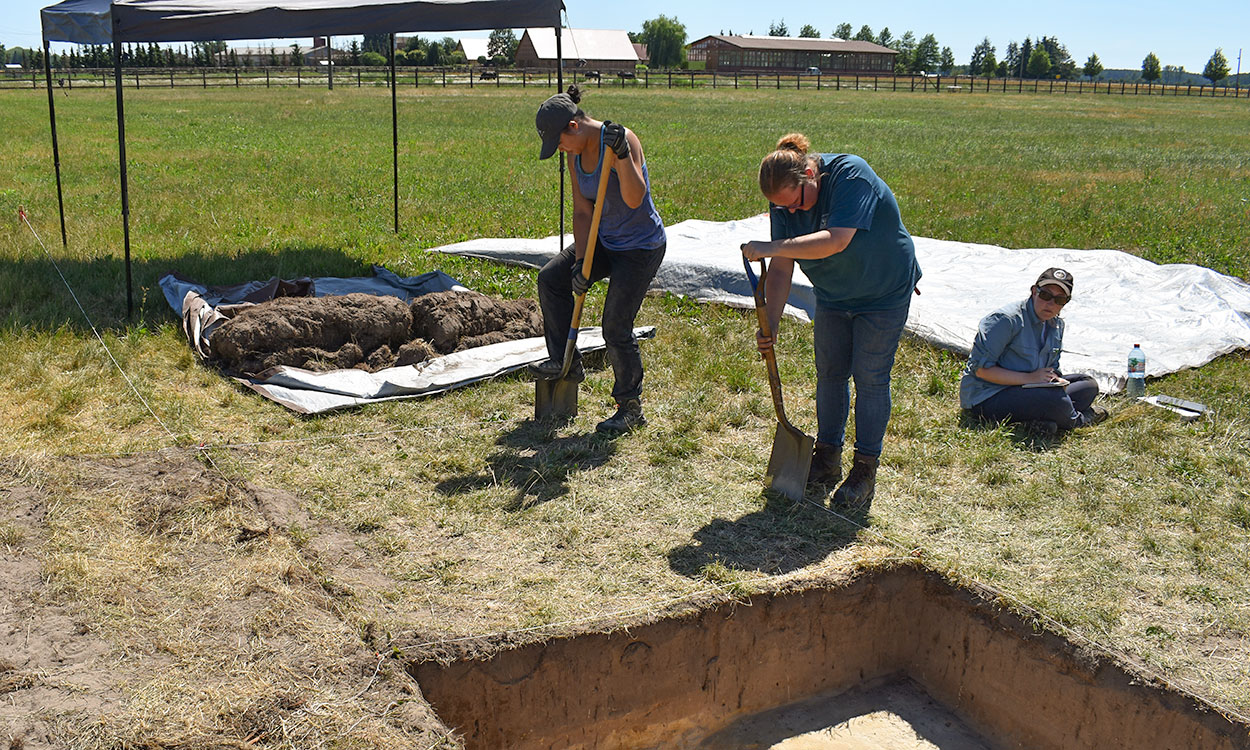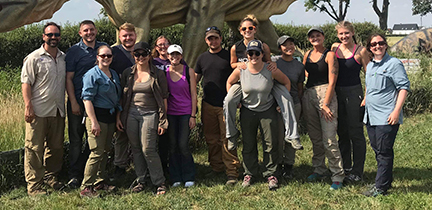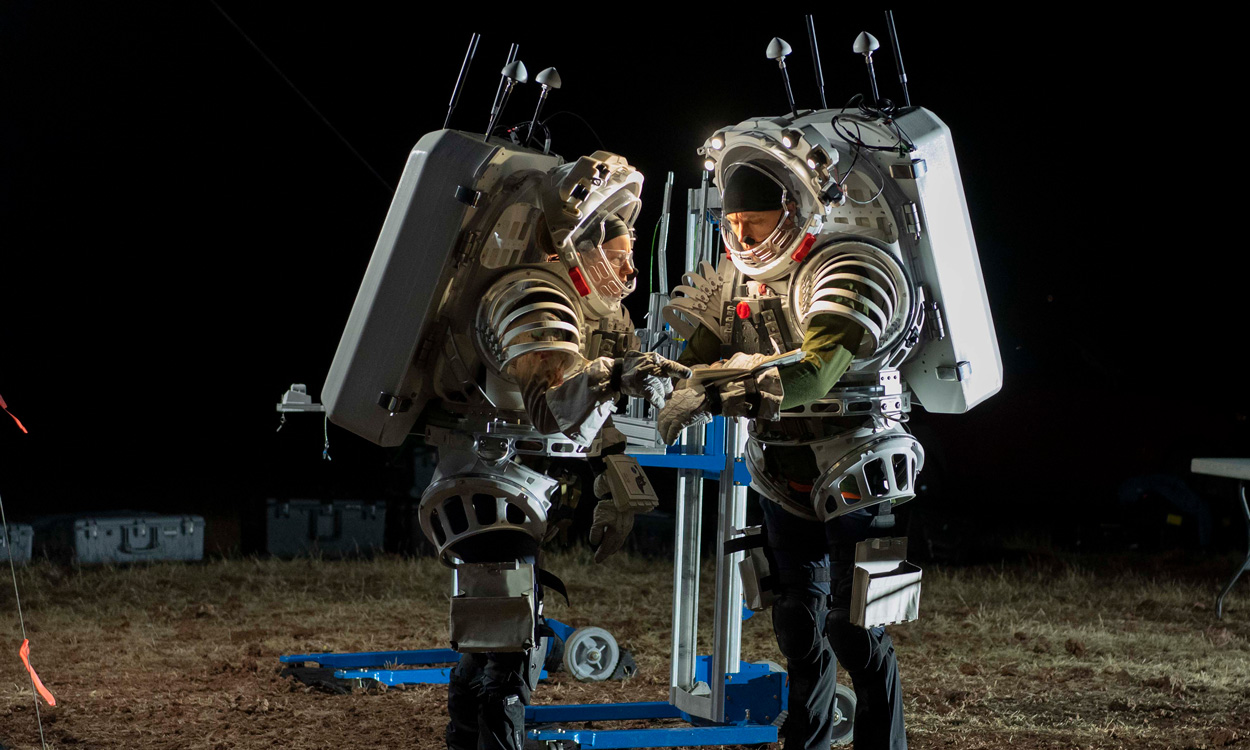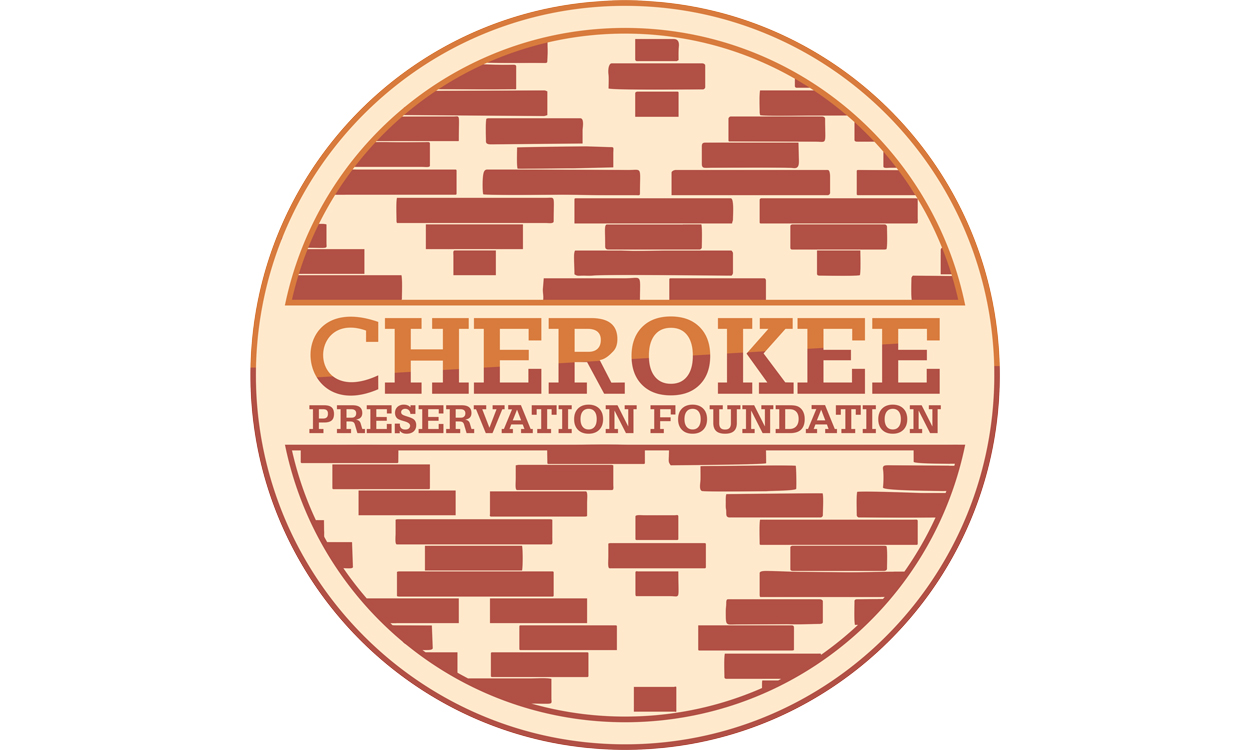The Nobel Mission - Forensic Anthropology Students Search for Lost WWII Airman

A mission to locate remains of a missing American airman from World War II in Germany was a homecoming, of a sort, for a Western Carolina University student.
Anna Maier, a senior majoring in forensic anthropology, is a native of Germany and was part of a research team made up of WCU forensic anthropology faculty and students who, through a U.S. Department of Defense grant, spent three weeks this summer participating in a forensic archaeological search and excavation. In addition to her forensic anthropology work, she did double duty as a translator.
The team was working under the auspices of the Defense POW/MIA Accounting Agency, commonly referred to as DPAA, which seeks to recover missing U.S. personnel from World War II, the Korean War, the Cold War, the Vietnam War and the wars in Iraq.

“I was very fortunate to come with them and to get this experience,” Maier said. “It did help that I can speak German and could translate for them,” she added with laughter. “But, it was good to see all the processes that go into a forensic project, from gaining permitting ― you can’t just go digging in someone’s yard or in our case, a farmer’s field ― and then the excavation itself, utilizing state-of-the-art technology. So, I got to learn two things at once, really.
“We found evidence much quicker than we expected,” she said. “Personally, I wasn’t sure we would find anything at all. We had some good interaction with locals, who were typically friendly and curious about our work, and the team itself proved efficient.”
The team’s findings are now undergoing laboratory analysis and verification at the DPAA. If a positive determination is made, the Department of Defense, through its Service Casualty Office, will make a notification to next-of-kin and brief them at their home, and possibly include other family members, to detail resources and services available.
Recovery teams use standard field archaeology methods during excavation as directed by an on-site anthropologist, according to the DPAA. Recovery sites can be as small as a few meters for individual burials to areas exceeding the size of a football field for aircraft crashes. Once a site perimeter has been defined, a grid system is established and each section is excavated one grid at a time. Every inch of soil removed is screened for any potential remains or material evidence.
Nick Passalacqua, assistant professor and coordinator of WCU’s Forensic Anthropology Program, served as the team’s recovery leader. He also drew upon his experience as a former full-time forensic anthropologist with the DPAA as well as his qualifications as a certified forensic anthropologist of the American Board of Forensic Anthropology.
“Obviously, it was a pretty awesome experience. One of the goals of our Forensic Anthropology Program is to produce graduates who are able to perform with technical capabilities,” said Passalacqua. “Part of WCU instruction is ‘here’s a mock forensic case, now do it.’ So, being involved in this mission takes it a step farther. They were undertaking an actual case.”
Germany was under aerial bombardment by Allied forces throughout World War II, with the U.S. Army Air Force suffering extensive losses of bombers during the many strategic campaigns. The WCU research team was searching for the lone, unlocated member of a bomber flight crew brought down by Luftwaffe fighters in the latter stages of the war.
“In the field, you never make any conclusions,” Passalacqua said. “You say you’ve found something and send it to the lab. What you want is to have as much evidence as possible for analysis and possible determinations. At this point, we can say it was consistent with what we were looking for.”
The DPAA announced earlier this month it had accounted for 218 formerly missing personnel from past conflicts in the past year, the highest annual total reached by the agency or its predecessor organizations. Of that total, 140 were from World War II.
“The noble mission of accounting for Americans missing from past conflicts continues to succeed because of the myriad partners DPAA is fortunate to work with,” said Kelly McKeague, agency director. “Foreign governments, Department of Defense and other U.S. agency partners, and private organizations, all contribute to providing more answers to families.”
Learn More About the Program
Bachelors of Science in Anthropology, Forensic Anthropology Concentration
Program Overview
Undergraduate: Major, Minor
Concentration: Forensic Science
Minors: Anthropology, Cherokee
Perspectives: Archaeology, Sociocultural
Careers: Forensics, Medicine

